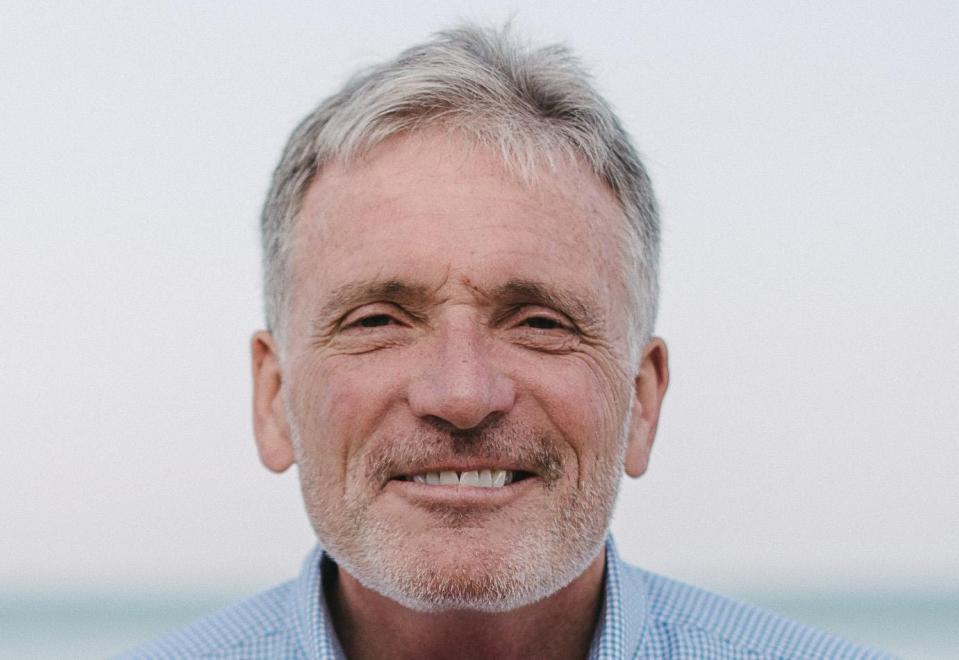Douglas Brouwer: Jimmy Carter’s legacy
By the time you read this, Jimmy Carter may have died.
As I write this, though, the former president is still alive and in hospice care, having decided at age 98, after a series of hospital visits, that he would prefer to die at home surrounded by his family.

Somehow all of this seems in character for a man who led by example, who practiced what he preached — or at least taught in his weekly Sunday school class.
I was in my mid-20s when Carter was president, and I don’t remember paying much attention to his presidency, other than being aware of the hostage situation in Iran, which Carter seemed to be held personally responsible for and which seemed to define his presidency. I do remember being glad that Richard Nixon was no longer president and that someone with a sincere Christian faith had been elected.
My first encounter with Carter’s legacy — some would hasten to point out that this was, in fact, his post-presidential legacy — was in Dumaguete City, a coastal town in the Philippines, southwest of Manila. Carter and his wife, Rosalynn, had led the first Habitat for Humanity build in Asia two years before I arrived, an ambitious build in the Philippines which included an extensive building site in Dumaguete.
For the build, which took place in March 1999, Carter led some 11,000 volunteers, including 9,000 from the Philippines and more than 1,000 from the U.S., in an effort to build more than 250 homes. Carter, along with his wife and sons, worked for two days to build a home for the Salas family, which included a mom and dad, five children, and 13 grandchildren. Carter then flew to the other Habitat work sites around the Philippines before returning to present the key to a finished home to the Salas family.
The 250-home goal was not met in 1999, so the church I was serving at the time in Ann Arbor, Michigan, pledged to return each year until the goal was reached. The church I served also helped to establish a dental clinic in the new Habitat neighborhood, and members of my church provided dental care at the clinic, while those of us who were less skilled built homes.
During my visit, I was able to walk along Jimmy Carter Street in this brand-new Dumaguete neighborhood and talk to many of its residents. Most of them remember meeting Carter, and all of them were grateful for the opportunity to own a home. Most of them spoke to me with tears of gratitude for what had happened to them.
I should note that these homes were not gifts. The new homeowners were required to have jobs, to invest at least 400 hours of sweat equity in the construction of their new homes, and to set aside 20 percent of their meager salaries for interest-free loan repayments, as well as home repairs, over a period of 15 years. That, or something close to it, has been the Habitat model since its founding in 1976.
Of course, Habitat for Humanity was only one of Carter’s post-presidential interests. He continued to be active in his church, teaching a popular Sunday school class each week, he wrote 32 books (a record I am not likely to break), and established the Carter Center in Atlanta, best known for its tagline “waging peace, fighting disease, building hope.” This is not even close to a complete list of Carter’s post-presidential interests or activities. Days before he entered hospice care, Carter was still expressing a hope to eradicate guinea worm disease in Africa and Asia, a goal he very nearly accomplished.
Prior to his presidency, Carter graduated from the United States Naval Academy in 1946 and served until 1953, when he left active duty to take over the family business, following his father’s death from pancreatic cancer. Carter continued in the Naval Reserve until 1961. He was a veteran and proud of his military record.
As I read the many tributes to Carter, I am struck by how much he accomplished during his presidency as well, though the impression lingers that his was somehow a failed presidency. His enduring legacy seems to be the 444 days of captivity for 52 American diplomats (and other citizens), not the Camp David Accords which has brought a lasting peace between Israel and Egypt.
Reflecting on all of this makes me realize that much has changed in our country when we think about and evaluate our political leaders. Personally, I wish we had a few more leaders like Jimmy Carter.
— Douglas Brouwer is a resident of Park Township, but is living and working during the current school year, 2022-23, in the Hague, Netherlands.
This article originally appeared on The Holland Sentinel: Douglas Brouwer: Jimmy Carter’s legacy

